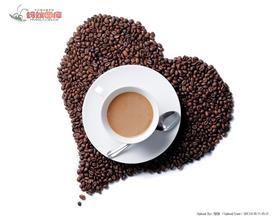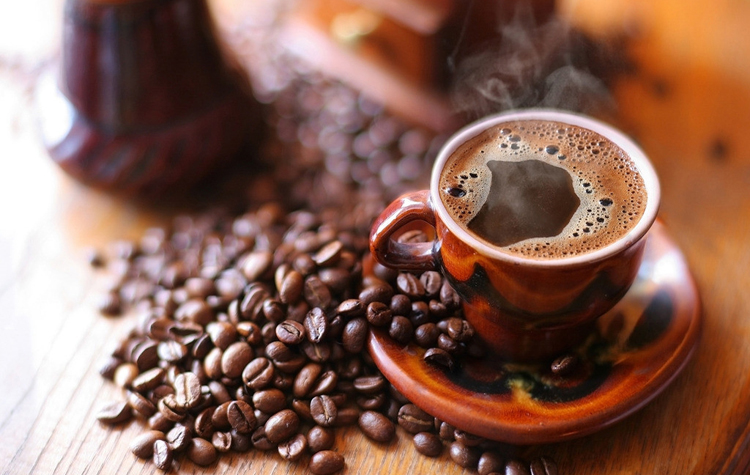Rwandan Coffee Flavors Rwandan Coffee Features
Malaba Coffee (Rwandan: Ikawa ya Maraba, French: Caf é de Maraba) is Fairtrade certified coffee, grown in the Malaba area of southern Rwanda.
Malaba's coffee crop is a bourbon of the Arabica species and is grown in fertile volcanic soil on high-altitude hills. The fruit of the coffee tree is mainly picked manually during the rainy season from March to May, and then transported to the cleaning station in Malaba to extract and dry the coffee beans. At some of these stages, coffee beans are divided into levels of quality. Farmers earn relative profits according to the output and quality of their coffee beans.
Malaba Coffee is sold to a number of roasting companies, among which the best quality is sold to the British Coffee roasting Company (Union Coffee Roasters) in the UK and the Public Coffee Company (Community Coffee) in the United States. As for the domestic market, the Rwandan specialty coffee roasting company buys coffee beans from Malaba and then turns to domestic sales. Malaba coffee is also used to brew beer.
In 1999, the Abauzam Gambi Cooperative (Abahuzamugambi) was founded, with about 2, 000 small farmers growing coffee trees under the management of the cooperative. Since 2000, the cooperative has been receiving funding from the National University of Rwanda (NUR) and the Joint strengthening Rwanda Agricultural Partnership Program (PEARL). The Abauzam Gambi Cooperative has improved the quality of coffee and successfully entered the professional coffee market.
Malaba Coffee grows in southern Rwanda, about 12 kilometers (7 miles) from the city of Butare and 150 kilometers (93 miles) from the capital, Gejali. The plan began in the Malaba area of Butare province, but was taken over by a local government organization in 2006, which is now part of the Huye district of the southern province. Due to its proximity to the East African Rift Valley and the Neuenway Forest Mountains, this zone is sloping, steep and has fertile volcanic soil. Coffee is grown at 1700 to 2100 m (5577-6889 ft) above sea level, usually with terraces on steep hillsides. The zone also has an average annual rainfall of 115 centimeters (45 inches). Most of them come from the rainy season from March to May, which is also the main coffee harvest season. The temperature at high altitude is slightly lower, with an average of about 20 °C (68 °F), which varies slightly due to seasons.

Important Notice :
前街咖啡 FrontStreet Coffee has moved to new addredd:
FrontStreet Coffee Address: 315,Donghua East Road,GuangZhou
Tel:020 38364473
- Prev

Jasmine-scented Ethiopian Sun Yega Sheffivoka Coffee Flavor Manor
Ethiopia is an ancient country with a history of 3000 years of civilization. The Hamite people who immigrated from the southern Arabian Peninsula were the earliest inhabitants. Monlinique I reigned in 975 BC. The Kingdom of Nubia was established in the 8th century BC. From the 1st century to 976 AD, the Ethiopian Empire, also known as the Kingdom of Aksum, was established in Aksum in the north. Christianity was introduced into Ethiopia in the 4th and 5th centuries.
- Next

Iron pickup coffee flavor iron pickup coffee characteristics of iron pickup coffee taste
Typica and Bourbon, two classic high-quality coffee varieties, are the main coffee varieties in Yunnan. In 1991, a series of Catimor varieties were introduced from Kenya (stronger anti-virus ability and higher yield). A variety of Arabian species (also known as small seed species). Because the morphology and habits of the two varieties are similar, the two varieties are mostly mixed. Yunnan area
Related
- Detailed explanation of Jadeite planting Land in Panamanian Jadeite Manor introduction to the grading system of Jadeite competitive bidding, Red bid, Green bid and Rose Summer
- Story of Coffee planting in Brenka region of Costa Rica Stonehenge Manor anaerobic heavy honey treatment of flavor mouth
- What's on the barrel of Blue Mountain Coffee beans?
- Can American coffee also pull flowers? How to use hot American style to pull out a good-looking pattern?
- Can you make a cold extract with coffee beans? What is the right proportion for cold-extracted coffee formula?
- Indonesian PWN Gold Mandrine Coffee Origin Features Flavor How to Chong? Mandolin coffee is American.
- A brief introduction to the flavor characteristics of Brazilian yellow bourbon coffee beans
- What is the effect of different water quality on the flavor of cold-extracted coffee? What kind of water is best for brewing coffee?
- Why do you think of Rose Summer whenever you mention Panamanian coffee?
- Introduction to the characteristics of authentic blue mountain coffee bean producing areas? What is the CIB Coffee Authority in Jamaica?

